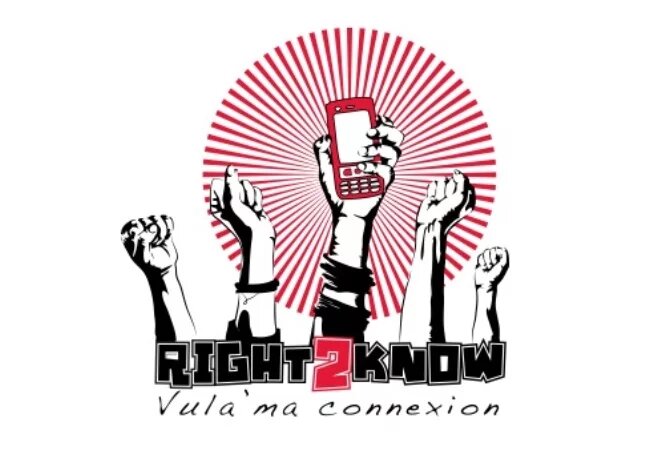
South African mobile network operators Vodacom and MTN are the main culprits stifling the public’s right to communicate, with high airtime and data costs continuing to undermine the democratising potential of mobile networks, says rights lobby group Right2Know.
Over the course of 2013, the lobby group initiated a campaign calling for free basic and affordable telecommunications. The campaign, titled Vula ma Connexion’ (open our connections) was launched with marches to MTN and Vodacom offices in Cape Town, and to the offices of the Independent Communications Authority of South Africa. An estimated 500 protesters took part in the action, which was later replicated in Johannesburg and Durban.
South Africa's cell phone costs are among the highest in the world. In 2011, the International Telecommunications Union placed the South Africa 77th out of 82 countries in a price basket review. In terms of mobile tariffs the WEF ICT report ranks SA 117th out of 140 countries on a global scale. According to ICASA we have the 9th most expensive mobile rated out of 12 SADC countries.
In a memorandum given to Vodacom, MTN , ICASA and the Portfolio Committee on Communications, Right2Know demanded, among other things, that the SMSes should be free, and that companies pass the full reduction in the price of termination rates on to customers. Termination rates are the fees operators pay each other for customers to make calls across networks. The campaign also demanded that the companies should improve the quality of their service and the range of free-to-call numbers should be increased to include children’s schools and hospitals
Mark Weinberg, national co-ordinator for Right2Know, said that the lobby group had targeted Vodacom and MTN because they were the "duopoly" controlling almost 80% of the market. Smaller operators such as Cell C have been trying to compete and reduce prices but are struggling to compete with the two big companies, Mr Weinberg said.
In a 2011 report by the International Telecommunications Union South Africa ranked 16th, just below Mexico and India, on the largest telecommunications in terms of revenue telecommunications, based on the approximately R169-billion (US$16.9-billion) revenue generated by Cell C, MTN, Telkom and Vodacom in 2010. This places South Africa seventh on the top 15 countries with highest ratio of telecommunication revenues to GDP for 2010.
Last year, during Parliament’s public hearings on communications costs in South Africa, the Department of Communications said Vodacom and MTN were the most resistant to passing mobile termination rates price cuts on to consumers and were mainly responsible for high mobile voice prices in the country.
Weinberg also argued that “cellphone companies are redistributing wealth from the poor to the rich" because “Smartphone users have evolved beyond SMS’s with Facebook, BBM and Whatsapp, so SMS’s have essentially become the technology of the poor. At the rates they’re charging it has become a tax primary on poor people, so we think it would be a good first gesture to make an SMS cost the same as a Mixit or Facebook message,” Weinberg said..
“Like we have the right to energy and to clean water, and laws get passed that even those without any money have free access to basic water and energy so we believe you should have access to free basic telecommunications it’s essential to living in the modern world, it’s essential to participating in the economy and a functioning democracy.
-----------------------------------------
The text above is an amalgamation of articles that initially appeared in eNCA and the Business Day. Further coverage can be found on Daily Maverick and Eye Witness News.
The submission R2K made to Parliament's Portfolio Committee can be downloaded here.